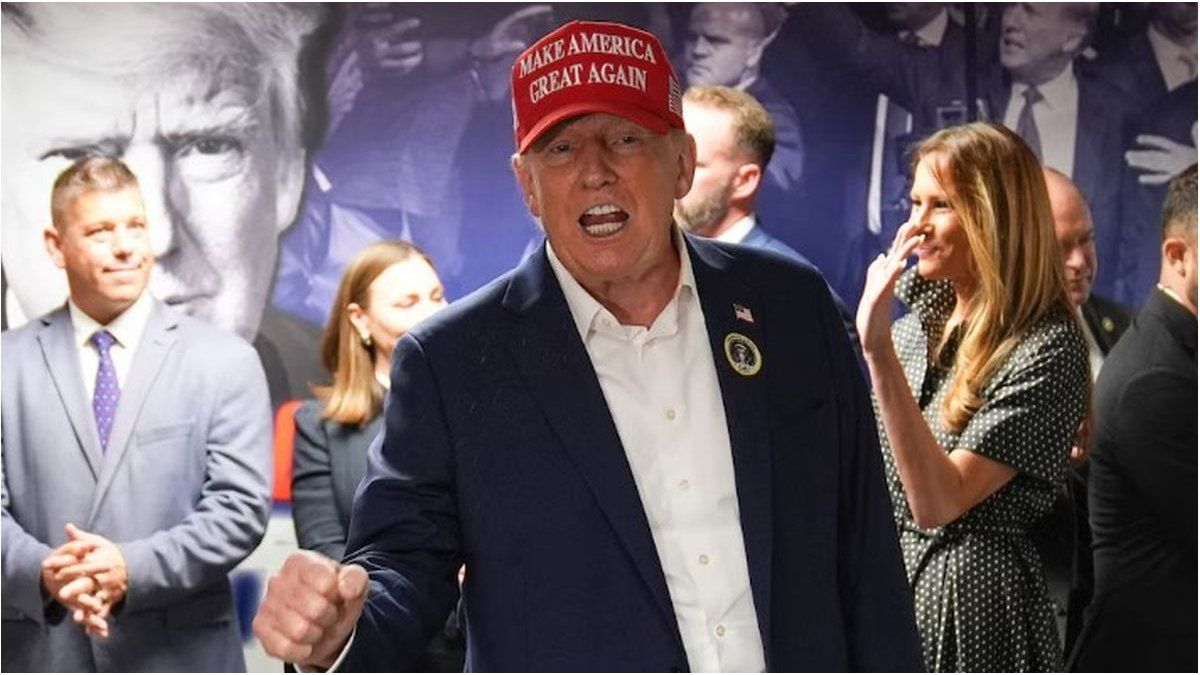US technology giants could be in trouble after the appointment of a new key figure in Donald Trump’s government. This is Brendan Carr, who will head the Federal Communications Commission (FCC). Carr made this clear in the hour after Trump announced his elevation to the position.
“We must dismantle the censorship banner and restore free speech rights to ordinary Americans,” Carr said on X, the social media platform.
A few days before receiving that appointment, Carr sent letters to Google CEO Sundar Pichai; Microsoft CEO Satya Nadella; the CEO of Meta, Mark Zuckerberg; and Apple CEO Tim Cook, predicting “Wide-ranging actions to restore Americans’ First Amendment rights” once Trump takes office.
That could include “a review of the activities of your companies, as well as outside organizations and groups that have acted to restrict those rights,” according to a copy of the letter Carr published in X.
Bigtechs in trouble
Many tech CEOs are trying to build a good relationship with the incoming Trump administration, hoping to improve their standing in the nation’s capital after years of aggressive oversight and antitrust lawsuits. Last week, for example, Zuckerberg met face-to-face with Trump at his Mar-a-Lago hotel and club in Florida.
Carr said dominant tech corporations abuse their market position and the legal protection of Section 230 to “eliminate diverse political viewpoints from the digital public square.” “Today, a handful of corporations can shape everything from the information we consume to the places we shop,” Carr wrote in his chapter on the FCC.
Embed
We must dismantle the censorship cartel and restore free speech rights for everyday Americans.
— Brendan Carr (@BrendanCarrFCC) November 18, 2024
“They are not simply prevailing in the free market; they are taking advantage of a landscape that has been distorted—in many cases by the government—to favor their business models.”
As a solution, Carr said Congress should not only eliminate Section 230’s “blank” immunity but also impose transparency rules similar to those imposed on broadband providers. That would force social media platforms to publish more specific terms of service and operate an appeals process so content creators can challenge companies that remove their posts.
Fight for the Future, a nonprofit group that advocates for online privacy, expressed concerns in an email to Yahoo Finance that Carr could subvert net neutrality rules, which require internet service providers Internet Service Providers (ISPs) treat all Internet data equally.
Carr voted to eliminate net neutrality rules in 2017
Carr, on Project 2025, also said the FCC should do more to protect Americans from already identified threats to national and personal security posed by the social media app TikTok and telecommunications equipment makers Huawei and ZTE.
TikTok’s platform, Carr said, provides Beijing “an opportunity to conduct a foreign influence campaign” by curating news and information seen by millions of Americans.
Congress and President Joe Biden agreed months ago to prohibit TikTok from operating in the US under Chinese ownership.
CARR.jpeg
By providing financial support to companies, the government seeks to prevent LPG prices from increasing, which would directly benefit consumers, especially the most vulnerable.
However, Trump’s statements on the campaign trail suggest he could at least try to reduce the impact of a law signed by Biden in April that makes Chinese ownership of the app illegal.
Carr has also asked that the FCC do a better job updating its “covered equipment list” of telecommunications equipment manufacturers that pose a risk to U.S. national security, Carr said.
Huawei and ZTE are included in that list. And he added that a loophole must be closed so that companies like China Telecom cannot operate unregulated data centers in the US.
Carr has said Big Tech should pay its “fair share” to the FCC’s $9 billion universal service fund, which subsidizes affordable Internet and rural connectivity programs. Instead of relying on telecom consumers for most of their funding, he said, Big Tech should pay because federally supported networks are used to deliver those companies’ products and services.
Source: Ambito
I am an author and journalist who has worked in the entertainment industry for over a decade. I currently work as a news editor at a major news website, and my focus is on covering the latest trends in entertainment. I also write occasional pieces for other outlets, and have authored two books about the entertainment industry.




